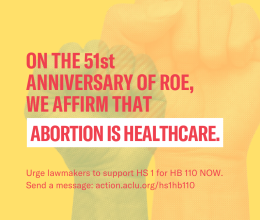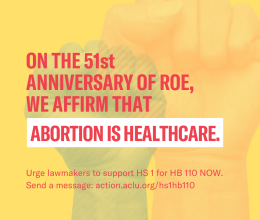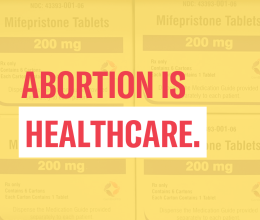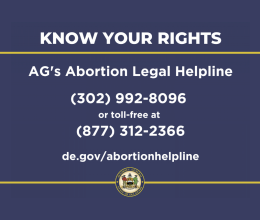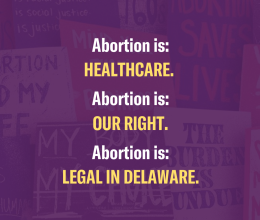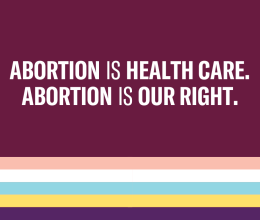Pregnancy and employment are not mutually exclusive. You should not have to choose between having a family and keeping your job. Federal law offers several protections against discrimination on the job during and after your pregnancy. This guide addresses common issues facing pregnant and breastfeeding workers.
Because the laws apply to certain employers and employees and some states provide additional protection, you should check with a lawyer if you believe your rights have been violated.
I found out I'm pregnant. I want to tell my employer, but I'm afraid of how my supervisor will respond. What are my rights?
- Employers governed by federal civil rights law cannot treat you differently because you are pregnant, just as they cannot discriminate based on your race, sex, or religion.
- Your employer cannot fire you because you are pregnant and can't make your job so miserable that quitting is the only option or that you are unable to do your job.
- If you are looking for work, under most circumstances, a prospective employer cannot refuse to hire you because you are pregnant.
What can I do if my coworkers are harassing me because I am pregnant or breastfeeding?
- Federal law forbids covered employers from harassing workers based on pregnancy, childbirth, or related conditions. If your boss, coworkers, or even the customers with whom you deal direct derogatory comments, jokes, gestures, or pictures at you that are related to your status as a pregnant or nursing woman, they may be violating the law.
- If you feel uncomfortable or harassed, you should report the unwelcome behavior to your human resources department.
- If you complain to your supervisor about harassment, your employer must investigate and take effective measures to stop the harassment, and can't retaliate against you in response (see discussion below).
My job is physically demanding. I need light duty, extra water breaks, or other minor, temporary job adjustments in order to stay on the job while I'm pregnant. Does my employer have to accommodate me?
- Pregnant women frequently need job modifications—such as light duty, non-exposure to chemicals and heat, or temporary job reassignment—during their pregnancy. You may be entitled to such accommodations.
- Federal law requires covered employers to treat pregnant workers the same way they treat other workers who need similar temporary accommodations, including temporarily disabled employees.
- If you have a pregnancy-related medical condition, like pre-eclampsia or gestational diabetes, your employer may be required to provide you a "reasonable accommodation" under the Americans with Disabilities Act.
- Even if you are experiencing a normal pregnancy, you may be entitled to a temporary job modification—such as light duty work—for your pregnancy-related limitation if your employer would have to make, or has made, similar accommodations for other workers (including disabled workers).
- Some states have additional laws explicitly requiring employers to provide job modifications to pregnant workers who need them.
- Unfortunately, some courts have allowed employers to deny light duty to pregnant workers, even when they give it to other employees, so check with an attorney about the law in your area.
As I get further into my pregnancy, my employer wants me to take my maternity leave now, but I'd like to keep working. Can my boss require me to take leave?
- You are legally entitled to work as long as you are willing and physically able. Workers covered under the Family Medical Leave Act (FMLA) are entitled to 12 weeks of unpaid leave for pregnancy-related reasons. Your boss cannot force you to take FMLA leave or other time off just because you are pregnant.
- Your employer cannot require or pressure you to leave work a specific number of days or weeks before your due date. So long as you are physically able to work, you have the right to decide when to start your leave.
- Because the FMLA provides unpaid leave, many women opt to use accrued time off in addition to (or instead of) FMLA leave. You can use your accrued vacation or sick days for pregnancy- and childbirth-related reasons.
- If you have saved up leave time, you can use that time in the same way you would normally be able to (as if you weren't pregnant). For example, if you are out sick with a cold and would normally get a paid sick day, then your employer can't refuse to pay you just because you're pregnant.
- If you normally are able to take your sick leave without a doctor's note, then you should be able to take pregnancy-related sick leave without a doctor's note.
- Your employer may require you to take your paid leave and your FMLA leave at the same time (concurrently).
I just gave birth. Now what are my rights?
- Recovery from childbirth is covered by FMLA. In addition, some states provide limited paid benefits under their temporary disability systems.
- The FMLA prohibits covered employers from treating you differently than other employees, whether you are on maternity-related leave or have returned to work after giving birth.
- Employers must treat FMLA leave the same as other comparable types of leave for purposes of accrual of seniority or benefits.
- If you require absences after your FMLA leave for follow-ups with your doctor or to deal with childbirth-related medical issues, your employer should treat these absences the same as those of other temporarily-disabled employees.
- Once you are ready to return to work from FMLA leave, your employer must reinstate you to the same position you held prior to your pregnancy (or one of similar pay and level). Again, your employer must treat your leave of absence the same as he/she would any other type of leave.
I'm still nursing my baby. Once I come back to work, can I pump during work hours?
- Hourly workers covered by the Fair Labor Standards Act have the right to pump on the job. Under the recently enacted Affordable Care Act (sometimes called Health Care Reform or Obamacare), nursing women1 are entitled to:
- Reasonable break time for an employee to express breast milk for her nursing child for one year after the child's birth; and
- A place, other than a bathroom, that is shielded from view and free from intrusion from coworkers and the public, which may be used by an employee to express breast milk.
- Covered employers do not have to provide paid breaks for the purposes of pumping breast milk. But, if you use your paid break time to express milk, then your employer must compensate you—in other words, your employer cannot refuse to pay you if you use your paid breaks for expressing breast milk simply because you used your break for pumping.
- Your employer should provide you with a chair and a flat surface, other than the floor, on which to place the pump. Ideally, the space will give you access to electricity so that you may use an electric pump (but your employer is not obligated to do so).
- If you complained about problems with accommodations for pumping, your employer must respond appropriately and fulfill its obligations to provide breaks and a private location to pump. If it does not do so, you can file a complaint with the Department of Labor.
- Not everyone is covered by this law. Many state laws provide additional protection.
1. Notably, an employee need not have recently given birth or be the biological parent of a child in order to qualify for these accommodations. With modern technological advances, non-birth mothers—including those in same-sex relationships, adoptive mothers, and mothers who use a surrogate—may be able to breastfeed. Thus, as a non-birth mother, you may be entitled to the same break time protections. In addition, transgender fathers who are breastfeeding are entitled to these protections.
Since I've returned to work, my employer is treating me badly. What can I do?
- Federal law prohibits covered employers from firing you or otherwise retaliating against you for asserting any of these rights on the job—including the right to pump on the job, the right to be free from workplace harassment, and the right to be free from discrimination on the basis of pregnancy.
- Your employer can't retaliate against you (including by reassigning you to a less desirable job, taking away your job duties or benefits, or firing you) for asserting your rights or filing a complaint about these issues.
- If your employer does so, you are entitled to file a retaliation complaint, either with the federal Equal Employment Opportunity Commission, the federal Department of Labor, or both, as well as seeking relief in court. You should consult an attorney if you think you're being retaliated against.



